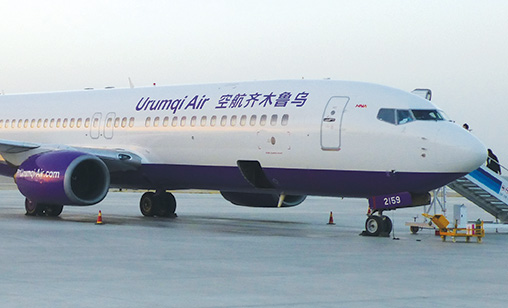China Update
China ignores IATA’s reservations about its new slot auctions
The International Air Transport Association opposes China’s pilot slot auctioning system, launched at two major Chinese hub airports in December, but it appears Geneva has lost the battle to withdraw the scheme.
February 1st 2016
The International Air Transport Association moved quickly after China announced in early December that it planned to auction slots at overcrowded Shanghai Pudong and Guangzhou Baiyun airports. Read More »
Within days an IATA team was in Beijing where the delegation met Civil Aviation Administration of China (CAAC) and Air Traffic Management Bureau (ATMB) officials.
But their request that Beijing’s regulators adhere to the Worldwide Slot Guidelines (WSG) system fell on barren ground. “Unfortunately, this is an edict that was handed down from the [Communist] Party itself to the CAAC and ATMB and there’s not much we can do to actually say no in this case,” said IATA’s head of worldwide slots, Peter Stanton.
“For reasons I won’t be public about ..…. there have been various issues that have been brought to the Party’s attention and this is one of the mechanisms they have decided to put into place.”
Speaking at the IATA Global Media Day in Geneva, Stanton did not have to wait long to discover he was right. By year end, nine slots at Guangzhou Baiyun were put up for auction and snapped up by seven airlines for 550 million yuan (US$84.7 million).
Most of the slots were purchased by China’s biggest and richest carriers and their subsidiaries. Urumqi Air, a subsidiary of Hainan Airlines, China’s fourth-largest airline, paid the highest price, 90.99 million yuan ($14.02 million), for a slot.
 |
| Hainan Airlines subsidiary, Urumqi Air, paid the top price of 90.99 million yuan for a slot at Guangzhou Baiyun airport in China’s first airport slot auction |
Other successful bidders included Shenzhen Airlines, China Southern Airlines, China Eastern Airlines, Xiamen Airlines, Zhuhai Airlines and Guizhou Airlines. The slots are valid for three years, but carriers will be allowed to exchange, transfer or lease them in the secondary market.
A notice on the official CAAC Central and Southern Regional Administration website said as many as 34 airlines participated in the auction, but observers agreed it quickly became obvious that smaller private airlines could not afford to the slots.
A senior executive from one private carrier told local media: “The auction was too expensive for us”. Wang Zhenghua, the chairman of China’s biggest budget carrier, Spring Airlines, said the allocation system is unfair to private airlines as state-owned airlines were allocated all the good time slots.
When the CAAC announced the pilot scheme on December 4 it said both airports would have new runways by 2016 which would create 196 additional weekly slots. There would be 98 slots available at the two airports for domestic carriers with the remainder allocated to international services.
Only domestic slots are being auctioned and the process will differ between the two airports. Guangzhou slots are being directly auctioned to the highest bidder and Shanghai Pudong will use a “lucky draw plus charge” model.
IATA opposes auctions because they deviate from the Worldwide Slot Guidelines (WSG), which is the recognized industry standard for allocating slots. WSG is best practice for both airlines and co-ordinators and maximizes the efficient use of airport infrastructure, explained Stanton.
“The problem with slot auctions is they do not ensure optimal slot utilization. Carriers with the ability to pay the most are granted access, but not airlines who will utilize the slot in the best interests of the airport or passengers,” he said.
“Currently, slot ownership does not need to be defined. But with slot auctions, slot ownership is an issue because the airline acquires the slot as an owned asset. Slot auctions also are deviations from international standards. The industry functions most effectively when the same process is followed at both ends of a route.
“If slots are allocated by different processes at various airports, it will increase complexity. The WSG are time tested and have proven to be the most effective means to allocate slots.”
Stanton said most deviations from the WSG are being considered because governments don’t know global standards exist so they create their own. “There also are some governments who believe they are unique and want to apply their own rules,” he said.
“In situations where the governments wish to deviate, then the best approach is to engage with IATA, request an amendment to the WSG so that it remains a single global standard. As well, there may be other solutions to their issues that would be more effective than their initial proposals.”
Last month, the CAAC announced $11.7 billion would be invested in aviation infrastructure, especially airports, this year. Construction of important new airports, including those in Beijing, Chengdu, Qingdao, Xiamen and Dalian, also would be stepped up.
Eleven key infrastructure projects and 52 upgrades or expansion work on civil aviation facilities also will be started in 2016. The CAAC said Beijing’s second international airport, the largest construction project in Chinese civil aviation history, is progressing well. Construction of the terminal and air traffic control facilities began in September and work on the support facilities is planned to start in June. Daxing International Airport, Beijing’s second international airport, is scheduled to open in June 2019 and become fully operational by December that year.